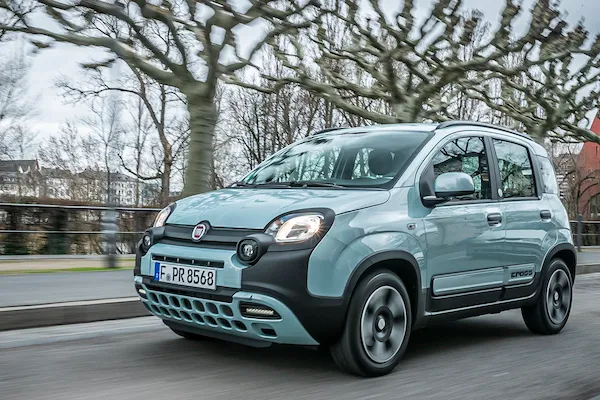In a remarkable and historic shift in the automotive landscape, Toyota has achieved what many once deemed impossible: it has overtaken Fiat in Italy, a nation synonymous with the iconic Italian automaker. This unprecedented victory for Toyota marks a significant turning point in the global automotive industry, with profound implications for both companies and the broader European market.
The Legacy of Fiat in Italy
For decades, Fiat has been more than just a car manufacturer in Italy—it has been a symbol of national pride, deeply ingrained in the country’s culture and history. Founded in 1899, Fiat has produced some of the most iconic vehicles in automotive history, from the Fiat 500 to the Panda. Fiat’s dominance in Italy has been virtually unchallenged, with the company consistently holding a large share of the domestic market.
Fiat’s influence extended beyond just cars; it has been a major player in Italy’s economy, providing thousands of jobs and contributing significantly to the country’s industrial output. The brand’s vehicles, often seen as affordable and practical, have become a staple on Italian roads, embodying the essence of Italian design and engineering. Fiat models like the Fiat 500 have become cultural icons, representing a unique blend of Italian flair and functionality.
The Rise of Toyota
Toyota’s ascent in Italy is a story of persistence, innovation, and strategic market positioning. Founded in 1937, the Japanese automaker has grown into one of the largest and most successful car manufacturers in the world. Toyota’s commitment to quality, reliability, and sustainability has earned it a loyal customer base globally.
In recent years, Toyota has made significant inroads into the European market, particularly with its hybrid and electric vehicles. The company’s focus on eco-friendly technology has resonated with consumers in Italy, a country increasingly concerned with environmental issues and urban mobility. Toyota’s hybrid models, such as the Prius and Yaris Hybrid, have become particularly popular, offering a blend of fuel efficiency and performance that appeals to a broad spectrum of drivers.
Toyota’s success in Italy is not just about selling cars; it’s about selling a vision of the future. The automaker has capitalized on the growing demand for sustainable transportation options, positioning itself as a leader in green technology. This approach has paid off, as more Italian consumers look for vehicles that align with their values and lifestyles. Toyota’s investment in research and development, particularly in the hybrid and electric vehicle sectors, has placed it at the forefront of the industry’s green revolution.
The Turning Point
The turning point for Toyota in Italy came in 2023, when the Japanese automaker’s sales surpassed those of Fiat for the first time in history. This milestone was not just a numerical victory; it represented a shift in consumer preferences and a challenge to the status quo of the Italian automotive market.
Several factors contributed to Toyota’s success. Firstly, the company’s emphasis on hybrid technology aligned with growing environmental consciousness among Italian consumers. As cities like Rome and Milan implemented stricter emissions regulations, Toyota’s low-emission vehicles became increasingly attractive.
Secondly, Toyota’s reputation for reliability played a crucial role. Italian consumers, once fiercely loyal to Fiat, began to seek alternatives that offered greater durability and lower maintenance costs. Toyota’s vehicles, known for their long lifespans and minimal repair needs, provided an appealing option.
Finally, Toyota’s aggressive marketing and strategic partnerships in Italy helped solidify its presence. The company invested heavily in building a robust dealership network and enhancing its brand image through sponsorships and advertising campaigns that resonated with Italian values and lifestyles. Toyota’s ability to adapt to local market conditions and consumer preferences gave it an edge over Fiat, which struggled to keep up with the rapidly changing automotive landscape.
Fiat’s Response
The news of Toyota’s triumph has sent shockwaves through Fiat’s headquarters in Turin. The once-unthinkable scenario of being dethroned in its home market has forced Fiat to reevaluate its strategies and operations. The company has already announced plans to accelerate its transition to electric vehicles, aiming to regain its position as a leader in innovation and sustainability.
Fiat’s CEO, Olivier François, acknowledged the challenges ahead but remained optimistic about the brand’s future. “We are witnessing a period of transformation in the automotive industry, and Fiat is committed to evolving with the times. While this moment is humbling, it also serves as a catalyst for us to push the boundaries of what is possible and to reconnect with our roots as a pioneer in automotive design.”
Fiat’s strategy moving forward will likely involve a greater emphasis on electric mobility and innovation. The company has already unveiled plans to launch a new line of electric vehicles, aiming to appeal to the environmentally conscious consumer base that has driven Toyota’s success. Fiat’s ability to innovate and adapt to the changing market will be critical to its future success.
The Broader Implications
Toyota’s victory in Italy has broader implications for the European automotive market. It signals a shift in consumer preferences towards more sustainable and reliable vehicles, challenging traditional notions of brand loyalty. This development could also encourage other automakers to intensify their efforts in the hybrid and electric vehicle sectors, potentially leading to a more competitive and innovative market landscape.
For Fiat, the road ahead will be challenging, but the brand’s resilience and deep connection to Italian culture could serve as a foundation for a comeback. As the company pivots towards electric mobility and modernizes its lineup, it has the potential to reclaim its former glory and reestablish itself as a leader in the global automotive industry. However, this will require significant investment in research and development, as well as a renewed focus on quality and innovation.
The impact of Toyota’s success in Italy will likely ripple across the entire European market. Other automakers will be closely watching this development, potentially leading to increased competition in the hybrid and electric vehicle sectors. This could result in more choices for consumers, lower prices, and faster advancements in automotive technology.
What this means
The toppling of Fiat by Toyota in Italy is a historic moment that underscores the dynamic nature of the automotive industry. It reflects changing consumer attitudes, the rise of new technologies, and the evolving competitive landscape. While Fiat faces an uncertain future, Toyota’s victory is a testament to the power of innovation, reliability, and strategic foresight. The coming years will reveal whether Fiat can adapt to these new realities or if Toyota’s triumph marks the beginning of a new era in the Italian automotive market.
Toyota’s achievement is not just a victory for the brand but a clear indication of the direction in which the global automotive industry is heading. The focus on sustainability, reliability, and innovation is reshaping the market, and companies that fail to adapt may find themselves left behind. As Fiat and other automakers respond to this challenge, the automotive landscape in Europe and beyond is set to undergo significant transformation. Whether Fiat can reclaim its position or whether Toyota will continue to build on its success remains to be seen, but one thing is certain: the automotive industry in Italy will never be the same again.





